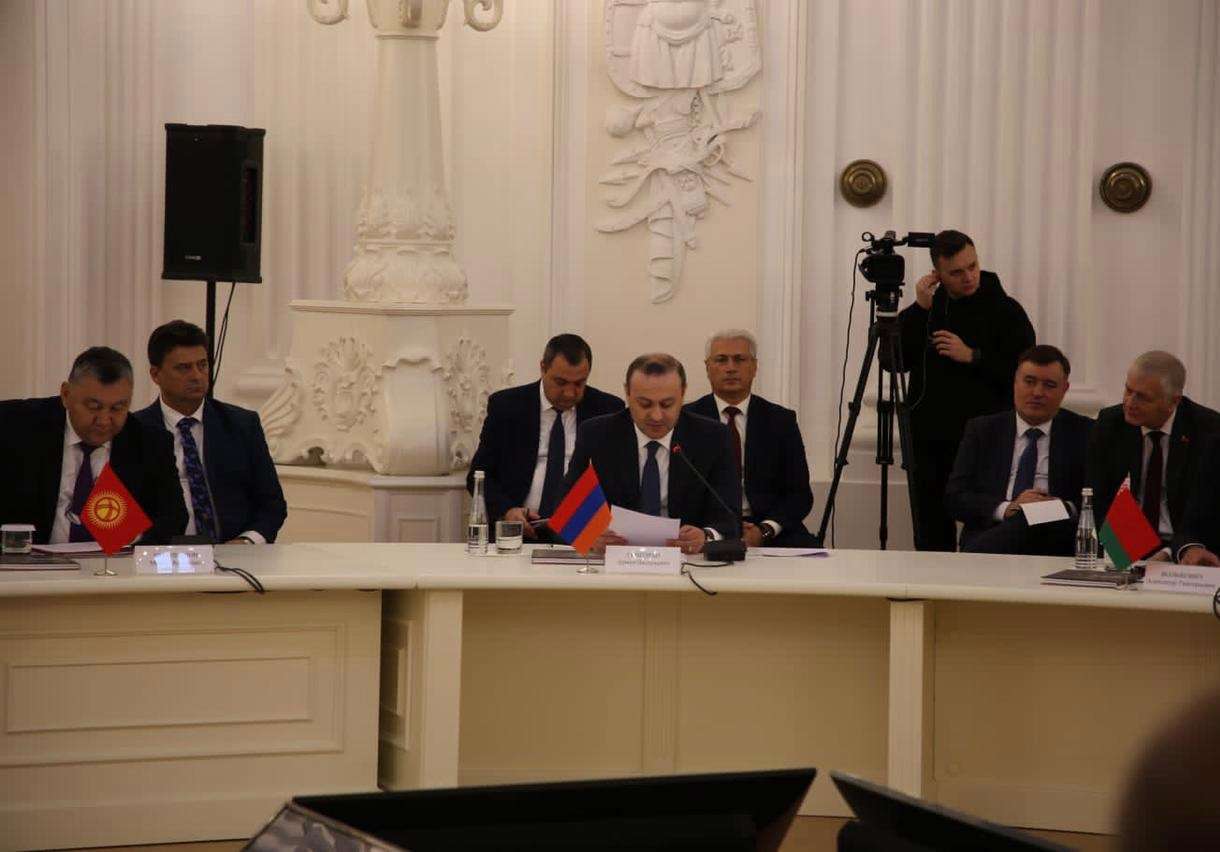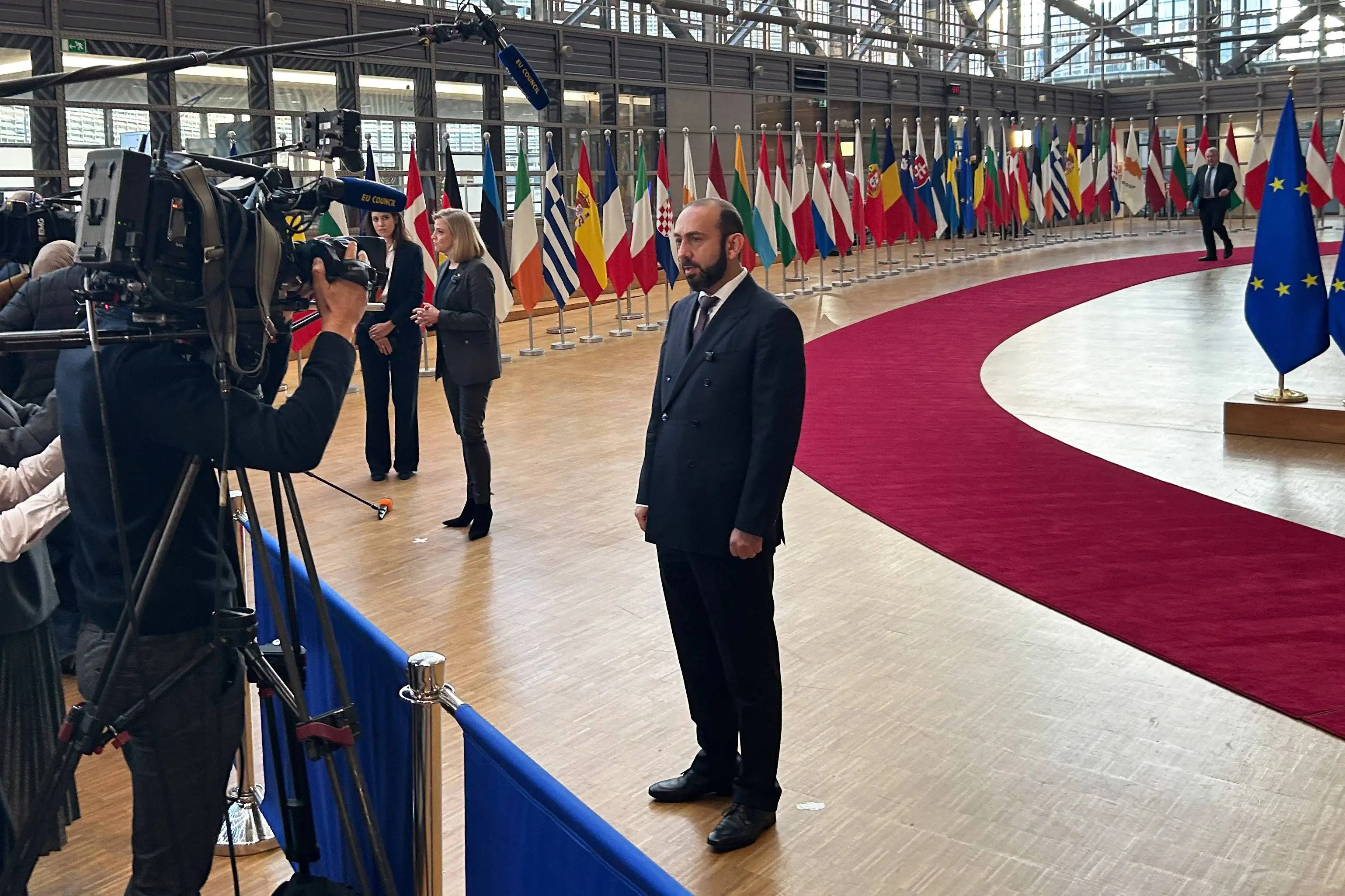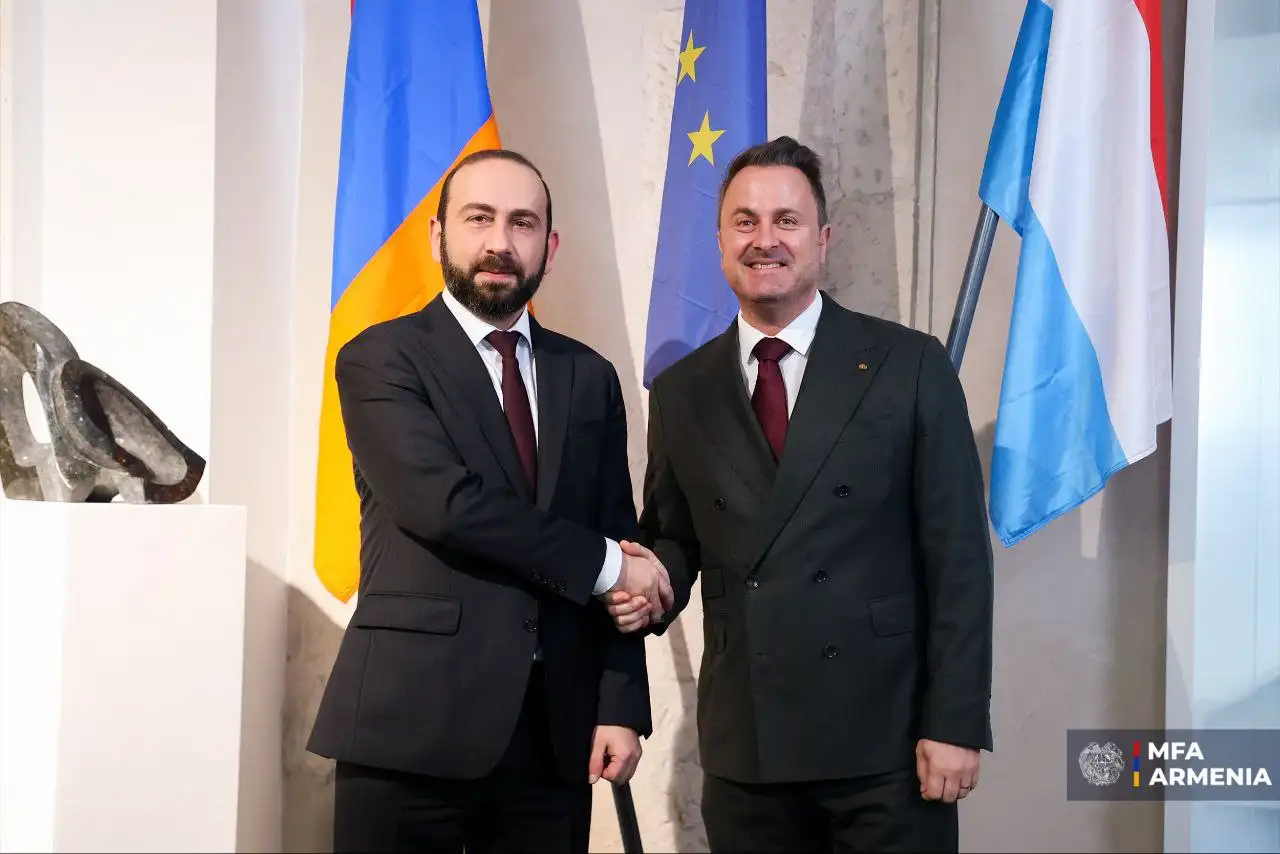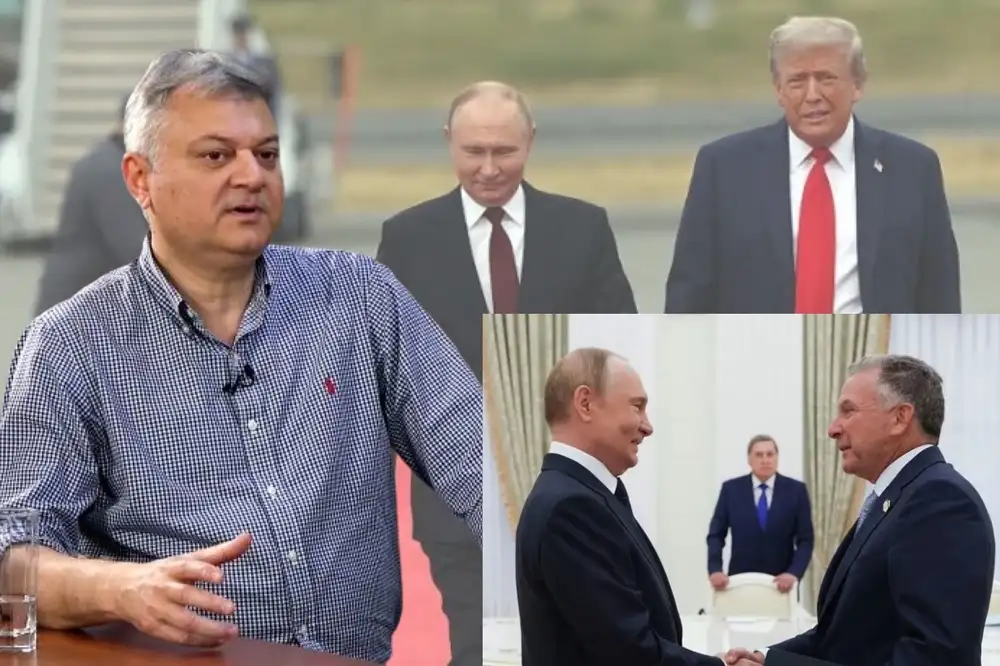Armen Grigoryan, Secretary of the RA Security Council, made a speech at the 10th meeting of the Secretaries of the Security Councils of the CIS member states.
"Before proceeding to my speech, I would like to thank Nikolai Patrushev, the Secretary of the Security Council of the Russian Federation, for the invitation to participate in today's meeting of the Secretaries of the Security Councils of the CIS member states.
Tomorrow, the Day of National Unity is celebrated in the Russian Federation. I congratulate Nikolai Patrushev and, on his behalf, the entire Russian people, wishing him peace and well-being.
Dear Colleagues,
On the agenda of today's meeting is the issue of "International security challenges and threats under current conditions." Within its framework, I would like to address the security issues of the South Caucasus and, in particular, the situation on the Armenian-Azerbaijani border.
The reason for the urgency of this issue for us is the military aggression carried out by Azerbaijan against Armenia on September 13 of this year.
I want to mention that it was not a border incident or a border clash, as some forces tried to present, but a large-scale invasion of the sovereign territory of the Republic of Armenia using heavy artillery, rocket launchers, and combat drones. The armed forces of Azerbaijan shelled 36 settlements and communities deep in the sovereign territory of Armenia, including the cities of Goris, Jermuk, Vardenis, and Kapan.
Thanks to the stubborn and heroic resistance of the Armed Forces of the Republic of Armenia and the reaction of our partners, the attack on Azerbaijan was stopped, but the military-political situation remains tense.
This aggression of Azerbaijan was discussed in the UN Security Council, the majority of whose members condemned Azerbaijan's illegal military operations. The attack was also widely condemned by the international community.
The targets of the Azerbaijani aggression were the peaceful civilian population and the vitally critical civil infrastructures. The total number of people temporarily displaced from Gegharkunik, Vayots Dzor, and Syunik regions of Armenia to safe places was more than 7600 people, primarily women, and older adults, as 1437 children and 99 disabled people.
About 192 residential buildings, 3 hotels, 2o schools, and 1 medical facility were partially or wholly destroyed. 7 electricity supply facilities, 5 water supply facilities,3 gas pipelines, and 1 bridge were damaged. 2 ambulances and 4 private cars were shot. The Kechut reservoir south of the resort town of Jermuk was also shelled..
As a result of the aggression, the number of victims exceeded 210, of which 3 were civilians. 2 people are considered missing. 293 servicemen and 8 civilians were injured. Along with that, the Azerbaijani side has distributed shocking videos of the torture of captured persons, physical injuries, extrajudicial reprisals against Armenian prisoners of war, including women, murders, and humiliating treatment of the bodies of the dead.
I must note that the risk of new aggression by Azerbaijan persists and remains relatively high. Almost every day, the Azerbaijani side organizes another provocation, violates the ceasefire on the border, and accuses the Armenian side of it.
I would also like to emphasize that since May 2021, the consequences of the aggression of the Azerbaijani side against the sovereign territory of the Republic of Armenia have not been eliminated, and the armed forces of Azerbaijan continue to illegally control tens of square kilometers of the part of our country.
Dear Colleagues,
Currently, the Republic of Armenia is trying to normalize relations with Azerbaijan. The work of border demarcation and border security commissions is essential in the settlement process, the formation of which was agreed upon on November 26, 2021, during the tripartite meeting of the President of Russia, the President of Azerbaijan, and the Prime Minister of Armenia in Sochi.
Two meetings of the border demarcation and border security commissions have already been held, and the third is scheduled to be held in the next few days.
In this process, fundamental documents of the Commonwealth of Independent States and the United Nations have a significant role. In particular, on December 21, 1991, the Alma-Ata Declaration was adopted in the first days of the creation of the CIS. Our states recognized each other's territorial integrity and the inviolability of existing borders.
Just two days ago, on October 31, as a result of the tripartite meeting of the leaders of Armenia, Azerbaijan, and Russia held in Sochi, a statement was adopted, according to which the parties "agreed to refrain from the use of force or the threat of its use, to discuss and resolve all problematic issues exclusively based on sovereignty, territorially based on mutual recognition of the integrity and inviolability of borders by the UN Charter and the 1991 Alma-Ata Declaration".
Through the mediation of the President of France and the President of the European Council, as a result of the meeting of the leaders of Armenia and Azerbaijan held in Prague on October 6, an agreement was reached, according to which in the process of border delimitation, the parties will accept as a basis the documents of the CIS and the United Nations, according to which the former administrative borders of the Soviet republics have become state borders between already independent countries, including Armenia and Azerbaijan.
Recognition of this fact is significant for ensuring stability and security on the Armenian-Azerbaijani border and throughout the CIS.
We emphasize the establishment of boundary and border security commissions. However, this does not mean there are no borders, as they sometimes try to present.
To insist that borders do not exist is very dangerous and irresponsible. It blurs such fundamental concepts as sovereignty and territorial integrity and paves the way for aggressive actions.
Existing CIS and UN documents confirm that the Armenian-Azerbaijani border was already demarcated during the USSR. Therefore, Azerbaijani troops have invaded the sovereign territory of Armenia, and these troops must leave the Armenian region.
Dear participants of the meeting,
In the context of unblocking transport communications in the region, I also want to note that the Azerbaijani side constantly raises the issue of opening a "transport corridor" through the territory of Armenia, as they say. The position of the Republic of Armenia on this issue has not changed. According to the logic of the corridor, there cannot be a road or transport route in the territory of Armenia. I have stated this many times, and I would like to emphasize once again that in the tripartite statements of the leaders of Armenia, Russia, and Azerbaijan on November 9, 2020, January 11, and November 26, 2021, as well as the President of the Russian Federation Vladimir Vladimirovich Putin there is no mention of such corridors in the decree No. 695 of November 10, 2020 "On measures aimed at maintaining peace in Nagorno-Karabakh." Therefore, we consider the arbitrary and unrealistic interpretation of the agreements reached unacceptably.
At the same time, we are interested in a real solution to the issue of unblocking communication channels in the region and support the activities of the tripartite Working Group established under the joint chairmanship of the Deputy Prime Ministers of the Republic of Armenia, the Republic of Azerbaijan and the Deputy Prime Minister of the Russian Federation. The work of this working group stems from the fact that the transport infrastructures being restored and constructed must operate under the full sovereignty of the states and within the framework of the national legislation through which they pass. On this basis, the Republic of Armenia is ready to open the roads as soon as possible. Moreover, the draft decision of the RA government to open three checkpoints to ensure transport communication between the western regions of the Republic of Azerbaijan and the Autonomous Republic of Nakhichevan has been in official circulation for a long time.
However, as we can see, the Azerbaijani side is not interested in the fundamental solution to the issue in such a constructive way. It continues to put forward the "corridor" version of the resolution, which is unacceptable to Armenia. In short, it is tough to dialogue and agrees with those who have no desire to dialogue and pursue completely different goals.
Dear Colleagues,
In the context of the above, I want to draw your attention to the fact that we are discussing opening all communications in the region. Sometimes it is ignored or not mentioned that according to the statements of the leaders of Armenia, Russia, and Azerbaijan, to quote paragraph 9 of the Declaration of November 9, 2020, point, "All economic and transport links in the region are blocked." In other words, communications should be opened not only for Azerbaijan but also for Armenia.
It is not a one-way street but a comprehensive process from which all parties should benefit. In particular, Armenia is interested in using communication channels and channels passing through the territory of Azerbaijan, aiming to carry out cargo transportation in both directions.
Dear colleagues, Dear Nikolai Platoni,
In conclusion, I would like to thank the Russian side for the warm welcome and hospitality and wish everyone a good day and productive work."




















